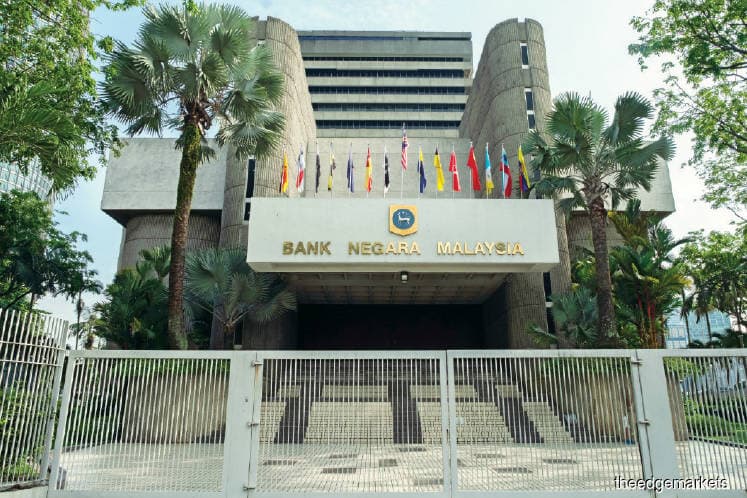
This article first appeared in The Edge Malaysia Weekly on November 18, 2019 - November 24, 2019
LAST week, Bank Negara Malaysia announced that the economy grew 4.4% in the third quarter, which was the slowest in a year. This did not come as a surprise to economists as it was within their expectations.
Gross domestic product growth for the first nine months was 4.6%. In order for the country to attain its GDP growth target of 4.7% for 2019, growth in 4Q2019 will have to hit at least 4.8%. Whether this target is achievable is anybody’s guess, but Bank Negara governor Datuk Nor Shamsiah Mohd Yunus is confident growth will remain positive in 4Q and this pace will be sustained into the following year.
“The 3Q2019 GDP growth number is somewhat similar to last year’s, when we had a supply disruption of gas production. Once that supply disruption normalised, we saw the economy growing again. The oil plants that were closed started producing again in 4Q2019. That will provide support,” she told a news conference to announce the 3Q2019 GDP growth last Friday. “The work towards restarting some of the mega projects that the government has announced is also underway. That will provide support for the economy.”
GDP growth in 3Q2018 was 4.4%, rebounding to 4.7% in the last quarter.
“We have a situation where the labour market is stable and wages are increasing, but we are not immune to developments happening globally because we are an open economy. Nevertheless, the diversified nature of our economy has provided some sort of cushion against external headwinds,” said the governor.
For 3Q2019, domestic demand growth moderated to 3.5% year on year, from 4.6% y-o-y in 2Q2019. It continued to be anchored by private sector consumption, which grew 7% for the quarter, slower than 7.8% in 2Q2019.
“The slowdown is because of the exceptional period seen during the Goods and Services Tax holiday period last year. Private consumption is still resilient but it has normalised towards the long-term average trend of 7%.
“With regard to developments in the labour market, we still see growth that will continue to provide support to private consumption going forward,” said Shamsiah.
While OCBC Treasury Research is not surprised to see private consumption growth slowing in 3Q2019 due to the absence of the tax holiday, it says this serves as a reminder that private consumption growth can no longer be counted on to “pull the oars as hard as before”.
Private investment growth was subdued in 3Q2019 at 0.3%. In the previous quarter, growth was 1.8%, weighed down by lower capital spending across major economic sectors.
Shamsiah said this is where more effort needs to be made to attract investments into areas where the country has a competitive advantage. “If we look at Budget 2020, one of the key strategies is to look at investment strategies and incentives in order to attract the right foreign direct investments (FDIs) that will be able to generate higher-value jobs so as to improve the economy going forward.”
Public consumption rose 1% y-o-y in 3Q2019, while public investment contracted by 14.1% y-o-y.
Exports contracted for the first time since 3Q2016, notes Standard Chartered Bank Research, coming in at -1.4%. This was fuelled by slower global growth and exacerbated by the US-China trade war.
“Malaysia’s export volume declined 5.8% y-o-y in 3Q2019, the worst since the global financial crisis in 2009,” it says.
Nevertheless, net exports still contributed to GDP growth as imports declined at a faster rate. In 3Q2019, imports contracted by 3.3% y-o-y.
For 2020, Standard Chartered Bank Research sees a potential bottoming out of global growth to improve onshore growth sentiment.
“We estimate that the Malaysian economy may run close to zero potential growth in 2020. However, downside risks remain and could turn the output gap negative,” it says.
Meanwhile, OCBC Treasury Research believes that the growth path for next year remains on a downward trend. “Instead of an acceleration to 4.8% y-o-y that the government has targeted in its budget, we still see it slowing down to 4.2% instead, compared with what is likely to be 4.5% for the whole of this year.”
The research firm adds that while domestic drivers can help buffer the impact, the global uncertainty remains the biggest swing factor that will have a bearing on investment and trade.
Save by subscribing to us for your print and/or digital copy.
P/S: The Edge is also available on Apple's AppStore and Androids' Google Play.